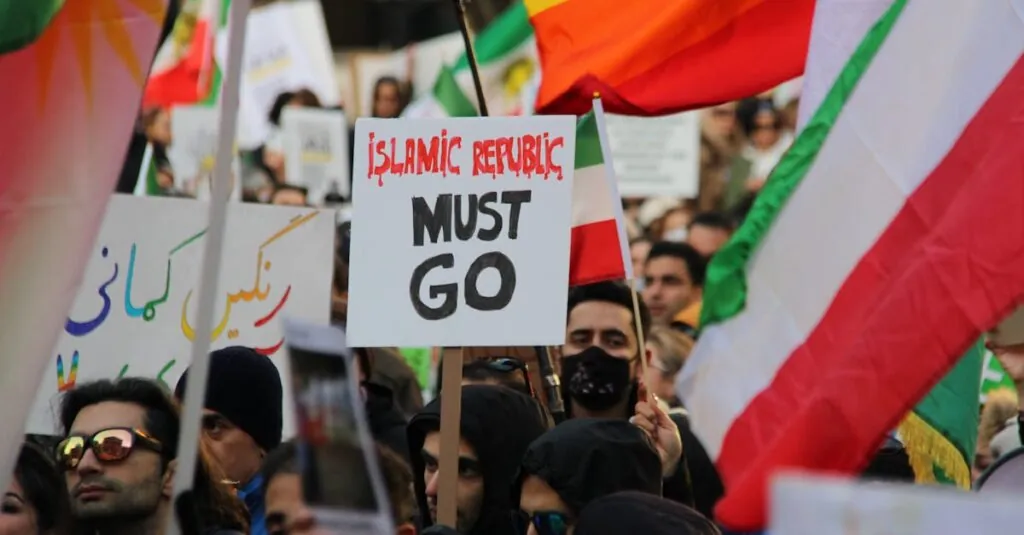In a world bursting with opinions and beliefs, personal ideology expression is like the confetti at a party—colorful, chaotic, and sometimes a little messy. Everyone’s got something to say, and the way they express their views can spark conversations, ignite debates, or even start a small revolution. Whether it’s through social media rants, art, or a well-timed meme, how individuals convey their beliefs shapes not just their identity but also the world around them.
But let’s face it: expressing personal ideology isn’t just about shouting into the void. It’s about finding your voice and connecting with others who share your passions—or enjoy a good debate. So, grab your megaphone (or keyboard) as we dive into the vibrant world of personal ideology expression, where every opinion counts and every voice deserves to be heard.
Table of Contents
ToggleUnderstanding Personal Ideology Expression
Personal ideology expression encompasses how individuals articulate their beliefs and values. This dynamic process fosters identity formation and influences societal interactions.
Definition of Personal Ideology
Personal ideology refers to the set of beliefs guiding an individual’s thoughts and actions. It encompasses various aspects, including political views, ethical values, and cultural norms. These beliefs emerge from experiences and reflections, shaping one’s worldview. Understanding personal ideology requires examining influences such as upbringing, education, and social environment. Individuals often express these ideologies through conversations, social media, and artistic endeavors. Such expressions contribute to creating a diverse tapestry of thoughts, fostering dialogue and understanding.
The Importance of Expression
Expression of personal ideology plays a crucial role in fostering constructive dialogue. Engaging in open discussions allows individuals to share perspectives and challenge assumptions. Active participation in ideological expression cultivates a sense of belonging and community among like-minded individuals. It encourages exploration of differing viewpoints, enhancing empathy and understanding. Additionally, expressing beliefs can empower individuals to advocate for social change. The act of sharing personal ideologies also contributes to the evolution of societal norms and values. By articulating their thoughts, individuals influence the dialogue, shaping the future landscape of their communities.
Factors Influencing Personal Ideology Expression
Various elements shape how individuals express their personal ideologies. These factors often reflect deeply rooted beliefs that manifest in different contexts.
Cultural Background
Cultural background significantly influences ideology expression. It encompasses traditions, customs, and values inherited from family and community. For instance, individuals raised in collectivist societies may prioritize community harmony over personal desires. Norms around communication styles also vary across cultures. Some cultures encourage open debate, while others favor respectful silence. Cultural narratives further shape perceptions of political, ethical, and social issues. This backdrop creates a framework within which people articulate their beliefs and values.
Social Environment
Social environment also plays a crucial role in expressing personal ideologies. Peer groups, family dynamics, and community interactions directly impact how individuals share their beliefs. Supportive environments encourage open dialogue, allowing for exploration of differing views. Conversely, critical or judgmental settings may stifle expression and promote conformity. Media influences are powerful as well, with social platforms enabling broader conversations around ideology. Exposure to diverse perspectives through these channels fosters understanding and challenges personal viewpoints. Ultimately, social context can either empower or inhibit personal ideology expression.
Methods of Personal Ideology Expression
Individuals express their personal ideologies through various methods, each contributing to a richer understanding of their beliefs.
Verbal Communication
Verbal communication serves as a direct approach for sharing beliefs. Conversations can occur in diverse settings, from casual discussions to formal debates. People articulate their thoughts clearly during these interactions, using specific examples to illustrate their points. Expressing ideas through dialogue fosters connection and can lead to meaningful exchanges. Active listening enhances these discussions, fostering mutual understanding. Engaging with differing viewpoints encourages critical thinking and growth, allowing individuals to reassess their stances in light of new information.
Artistic Expression
Artistic expression provides an alternative method for individuals to showcase their beliefs creatively. Forms such as painting, sculpture, music, and writing convey messages that resonate emotionally. Artists often draw on personal experiences to reflect their ideologies, connecting with audiences on a deeper level. For instance, protest songs and thought-provoking literature can evoke strong responses and provoke discussions about societal issues. This mode of expression encourages viewers and listeners to reflect on their values while appreciating the beauty of creativity. Connecting through art allows individuals to explore complex subjects in a compelling and impactful way.
Digital Platforms
Digital platforms facilitate the rapid sharing of personal ideologies. Social media channels enable users to post thoughts and interact with audiences worldwide. These platforms allow for immediate feedback and collaborative discussions, creating virtual communities around shared beliefs. Individuals can join groups focused on specific ideologies, further enhancing engagement. Hashtags and trends help elevate important causes, making personal expressions more visible. Online forums foster debate and discussion, offering a space for diverse perspectives. Engaging with digital media empowers individuals to influence conversations while expanding their reach.
Impacts of Personal Ideology Expression
Personal ideology expression significantly impacts both individual identity and broader societal dynamics. Engaging with beliefs helps shape personal identities while also influencing community interactions.
On Personal Identity
Personal beliefs often anchor an individual’s self-concept. They guide choices, behavior, and relationships. Possessing a strong ideology fosters a sense of belonging. Individuals frequently connect with others who share similar values, reinforcing their identities. Embracing diverse perspectives encourages growth. Personal ideology expression facilitates self-discovery through reflection and dialogue. This exploration often leads to a more robust and nuanced understanding of oneself.
On Society
Societal transformation stems from the collective expression of personal ideologies. Engaged discourse sparks awareness of various issues, prompting civic participation. Advocacy for social change arises from shared beliefs, challenging traditional norms. As individuals articulate their views, they contribute to vibrant public debates. These conversations promote tolerance and understanding among different groups. Increased awareness of diverse perspectives also enhances community cohesion. Ultimately, personal ideology expression plays a critical role in shaping and evolving societal values.
Personal ideology expression is a powerful tool for individuals seeking to navigate an increasingly complex world. By sharing beliefs and engaging in dialogue, people not only shape their identities but also influence the fabric of society. Each person’s unique perspective adds to the collective narrative, fostering understanding and empathy among diverse groups.
As individuals embrace their ideologies, they create opportunities for growth and connection. This journey of expression not only enriches personal lives but also encourages collective action towards positive change. Ultimately, the vibrant tapestry of beliefs woven through personal expression can lead to a more inclusive and thoughtful society.



